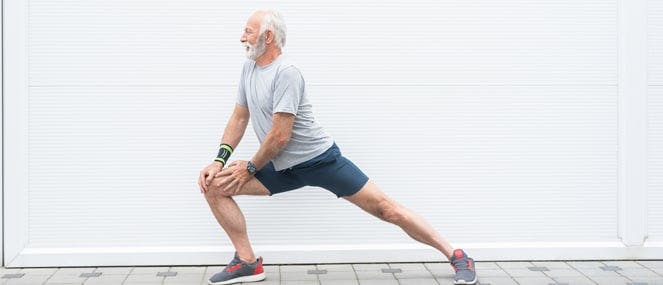
- Health hub/
- Arthritis, joint, bone & muscle/
- Running assessments


Running can be a really effective and really enjoyable way to exercise.
Of course we have the benefits of staying fit and feeling good, however there can be downsides to running, the most obvious being injury.
We understand from surveys that consistently more than half of runners suffer an injury in any given year.
This is disappointing, given how much we now know about how to prevent these injuries from occurring in the first place.
Given the repetitive nature of running, most of these injuries present as overuse-type injuries, rather than traumatic incidents.
Traumatic events include injuries like broken bones or sprained ankles, while overuse injuries build up over time and include conditions like patellofemoral pain syndrome (PFPS), tibial stress syndrome (commonly known as “stress fractures”), low back pain, Achilles and patellar tendon problems, plantar fasciitis (pain under the foot) and ITB friction syndrome.
We always need to look closely at the extrinsic factors that will impact on a runners loading tolerance. Footwear, increases in training load, environmental conditions and running surface all play a part in how much load we are subject to. These are best discussed with your physiotherapist or running coach.
We also know that our biomechanics, the way we move, impact heavily on the prevalence of these overuse conditions.
A great way to identify, then rectify, a lot of these underlying factors is to utilise video-analysis of a person’s running technique and reverse-engineer some corrective and preventative strategies to give runners the best possible chance of getting through their training loads without breaking down.
While problems show themselves in different ways during video-analysis assessments, there are certainly some common root causes that can be common amongst a number of overuse injuries.
These include poor mechanics of the foot, core strength and stability problems, pelvic control issues, problems with deep hip muscle stabilisation, stride inconsistencies, unnecessary trunk movements and gender specific differences.
A typical video analysis session should occur after your physiotherapist has had an in-depth discussion with you regarding you injury history, running background, current training loads and goals. Once the extrinsic issues have been ironed out, a running video analysis can take place.
An in-clinic video analysis will usually take place while you run on a treadmill. Some markers are stuck to the surface of your skin in key positions for ease of identification and assessment. Your physio will use video capture software to record your technique from a few different angles. After the filming is complete, you sit down with your physio, and go through all of the finer details of where you may be able to improve and what the best strategies will be to do it.
Video analysis can be an extremely effective tool in run technique coaching and helps us to fast track any corrections that may be required.
The best part about this kind of technology is that it gives people the opportunity to identify problems BEFORE they become injuries, which is so important for repetitive sports like long-distance running where we know we can have such a positive influence on injury prevention.
What’s more, because injury prevention and performance enhancement fit so nicely together, you might even find you run faster too!
If you are keen to build your running load and speed, and particularly if you are thinking about entering an event, get yourself in for a video analysis. You might be surprised at what you find!
~This article first appeared on Sydney Sports & Orthopaedic Physiotherapy~
Brad and the SSOP team are our injury prevention experts for the Blackmores Sydney Running Festival so send them your questions at Ask a Physio and they’ll help you achieve your goals and get you over the finish line!




